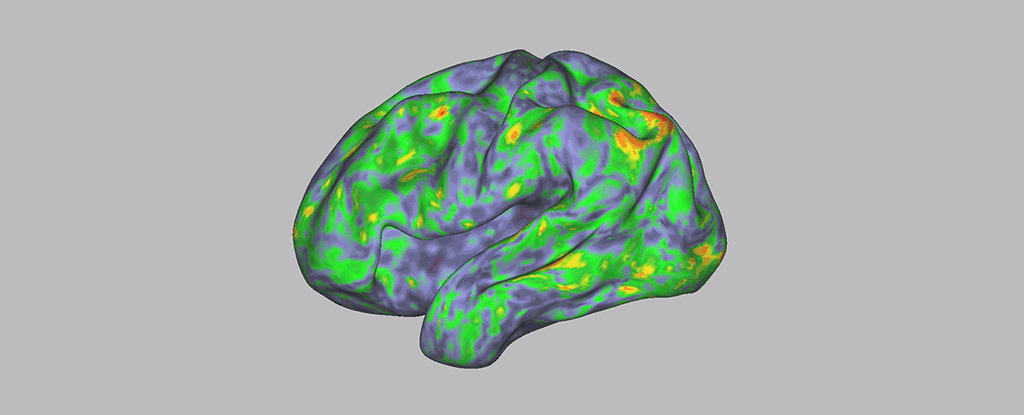Once maligned for their psychedelic properties, magic mushrooms are increasingly attracting attention for their same mind-altering potential as a therapy for a wide variety of mental health issues.
Yet surprisingly little is known about the diverse neurological effects of the fungus's psychoactive compound, psilocybin, making it difficult to predict how the drug might ultimately benefit the community as a medicine.
A study led by Washington University School of Medicine psychiatrist Joshua Siegel tracked brain changes in seven healthy adults before, during, and after taking a high dose of psilocybin, identifying disruptions in connectivity that persisted for weeks in some areas of the brain.
The findings fill gaps in our understanding of how psilocybin's biochemical influence translates into large-scale changes in behavior that may help or hinder individuals with different psychological needs.
"These days, we know a lot about the psychological effects and the molecular/cellular effects of psilocybin," says Siegel.
"But we don't know much about what happens at the level that connects the two – the level of functional brain networks."
Magic mushrooms weave their glamor by mimicking serotonin's affinity for the 5-HT2A receptor. The subjective effects are well known, typically including euphoria coupled with distortions of self-perception, time, space, sound, and color.
Animal models confirm that briefly activating these receptors in regions where they're found in high density, such as the medial frontal lobe, triggers long-lasting effects by loosening hard-wired pathways and promoting new connections.
It's this very 'plasticity' of the nervous system that allows our brain to be adaptable, making psilocybin an appealing pharmaceutical for treating psychological conditions that are stubbornly resistant to change.
Whether these same conclusions can be applied to humans, however, isn't clear. So Siegel and his team conducted functional magnetic resonance imaging scans on volunteers before they took a generous 25 milligrams of psilocybin. Further scans were done immediately following their dosage and again 21 days later.
For comparison, the subjects also received a 40-milligram dose of the stimulant methylphenidate on separate occasions, with a similar series of scans taken.
The scans clearly showed significant disruption to the functional connectivity across the brain's cortex after the psilocybin dose. Deeper inside the brain, major changes were also seen in a group of regions most active when we're awake but not occupied with a task, known as the default mode network (DMN).
Based on previous studies involving rats, the researchers suspected the widespread disruption resulted from populations of nerve cells that typically coordinate their activity falling out of sync, temporarily erasing the unique patterns that give rise to our sense of self.
"The brains of people on psilocybin look more similar to each other than to their untripping selves," says neurologist and senior author Nico Dosenbach.
"Their individuality is temporarily wiped out. This verifies, at a neuroscientific level, what people say about losing their sense of self during a trip."
Curiously, giving the volunteers a simple auditory-visual matching task after their psilocybin dose as they were being scanned seemed to 'ground' their DMN, reducing the severity of disruption.
Scans conducted three weeks after psilocybin treatment showed the cortex had mostly returned to pre-dose synchronization. Yet a region called the anterior hippocampus, which is involved in a range of cognitive processes that involve perception and memory, continued to show a persistent functional change.
Connecting what we know about the pharmacology of psilocybin with self-reported and cultural knowledge of its effects within a neurological framework could point the way to treatments that ease depression or reduce post-traumatic stress, or serve as a way to caution against its use in situations where disruption could pose significant risks.
We might still be some way off visiting our doctor for a dose of mushrooms to help us get our minds back in working order, but studies like this get us a step closer to understanding the fascinating relationship between our brain and this magical group of fungi.
This research was published in Nature.
